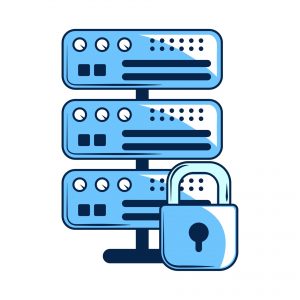
In today’s digital landscape, website security is of paramount importance. One of the most pervasive and damaging threats to online businesses is malware. Malware can disrupt website functionality, compromise sensitive data, and tarnish your online reputation. As an online business owner relying on a Virtual Private Server (VPS) for hosting, it is crucial to take proactive steps to combat malware threats. In this article, we will explore effective strategies to ensure the safety of your website on a VPS and protect it from malicious attacks.
Choose a Reliable VPS Provider
The first line of defense against malware is selecting a reputable VPS provider. Look for providers that prioritize security, offer robust malware detection and prevention mechanisms, and perform regular security updates. Additionally, ensure that the VPS infrastructure is well-maintained and offers strong firewall protection to thwart potential threats.
Keep Software and Applications Updated
Outdated software and applications are often vulnerable to malware attacks. Regularly update your website’s content management system (CMS), plugins, themes, and any other software you use. Developers frequently release security patches and bug fixes to address vulnerabilities, so keeping everything up to date is vital in mitigating malware risks.
Implement Strong Access Controls
Enforce strict access controls to your VPS, limiting access privileges to authorized personnel only. Use unique and strong passwords, two-factor authentication (2FA), and regularly review and update access credentials. By controlling who can access your VPS, you minimize the chances of unauthorized individuals gaining entry and compromising your website’s security.
Install Reliable Security Plugins
Utilize robust security plugins specifically designed for your chosen CMS platform. These plugins can enhance your website’s security by implementing features like malware scanning, real-time threat detection, and blocking suspicious IP addresses. Popular security plugins such as Wordfence, Sucuri, or iThemes Security offer comprehensive protection against malware threats.
Perform Regular Backups
Regularly backing up your website is crucial in the event of a malware attack. If your website becomes compromised, you can restore it to a previous clean version, minimizing the impact of the attack. Schedule automated backups to a secure offsite location or a separate server to ensure redundancy and data integrity.
Employ Malware Scanning and Removal Tools
Invest in reliable malware scanning and removal tools to actively detect and eliminate any malicious code or files on your website. These tools scan your website’s files, database, and server for known malware signatures and suspicious behavior. Prompt identification and removal of malware are vital to prevent further damage and protect your website’s visitors.
Enable Web Application Firewall (WAF)
A Web Application Firewall acts as a protective barrier between your website and potential threats. It filters incoming traffic, identifies and blocks malicious requests, and provides an additional layer of security against common attack vectors such as SQL injections and cross-site scripting. Enable a WAF on your VPS to enhance your website’s security posture.
Monitor Website Activity
Regularly monitor your website’s activity logs and server logs for any suspicious behavior. Look for unauthorized access attempts, unusual file modifications, or unexpected traffic spikes. Monitoring tools and intrusion detection systems can provide real-time alerts and help you identify and respond to potential malware threats promptly.
Educate Yourself and Your Team
Stay informed about the latest malware threats and security best practices. Educate yourself and your team members about common attack techniques, phishing attempts, and social engineering tactics. By fostering a security-conscious mindset, you can collectively protect your website from malware and other cyber threats.
Safeguarding your website from malware threats is an ongoing process that requires diligence and proactive measures. By choosing a reliable VPS provider, keeping software up to date, implementing strong access controls, utilizing security plugins, performing regular backups, employing malware scanning tools, enabling a Web Application Firewall, monitoring website activity, and educating yourself and your team, you can significantly reduce the risk of malware infections and protect your online business. Prioritize website security on your VPS to ensure a safe and secure digital presence.



